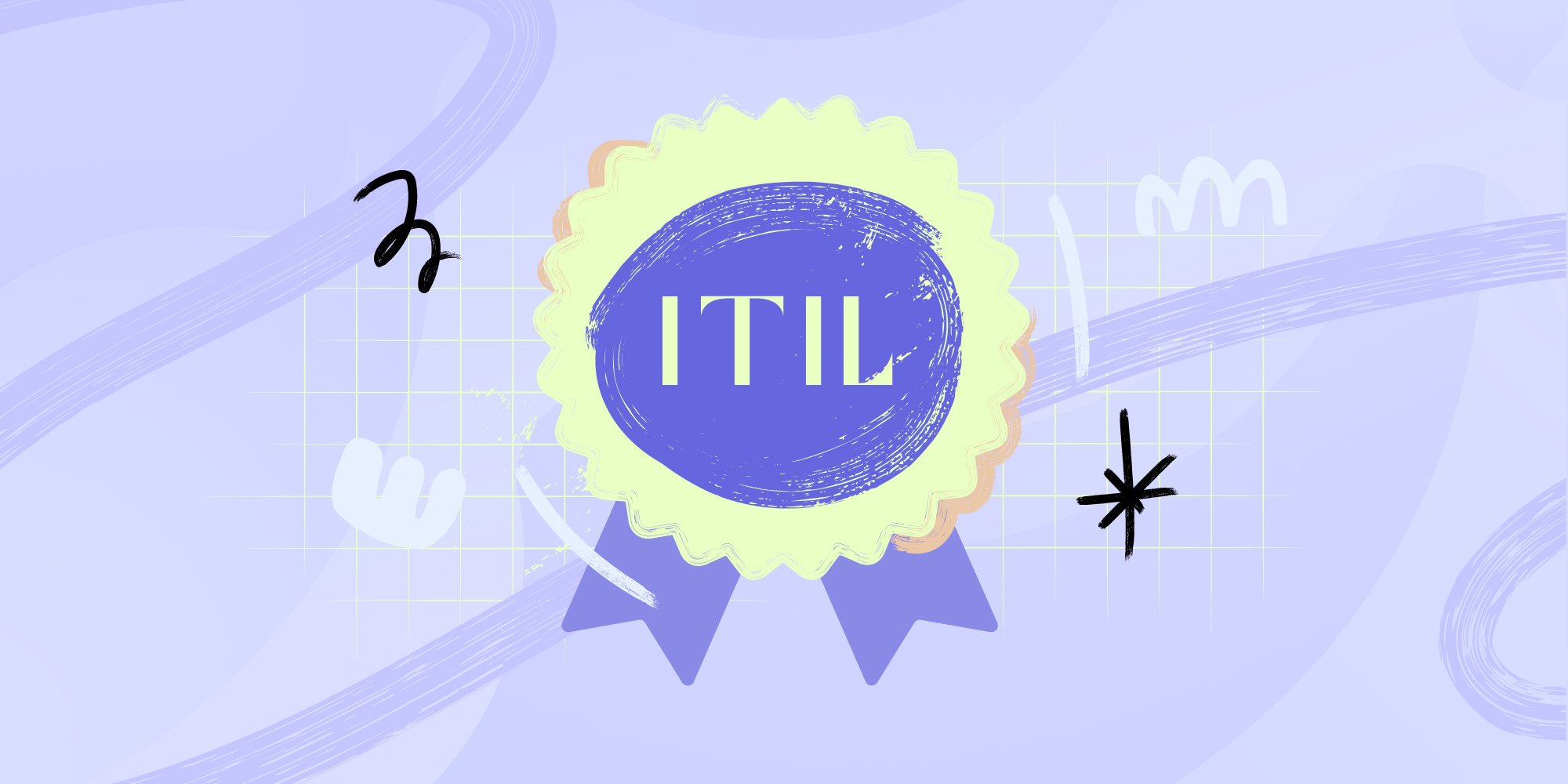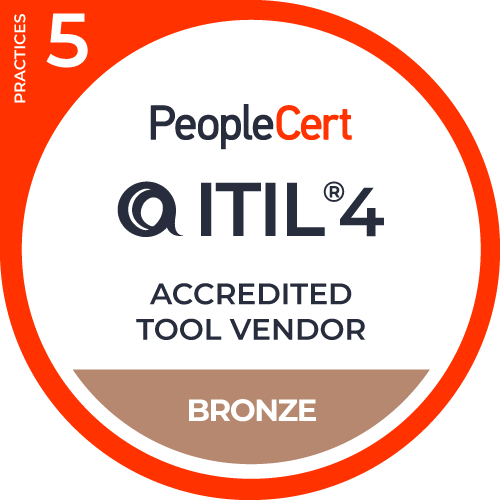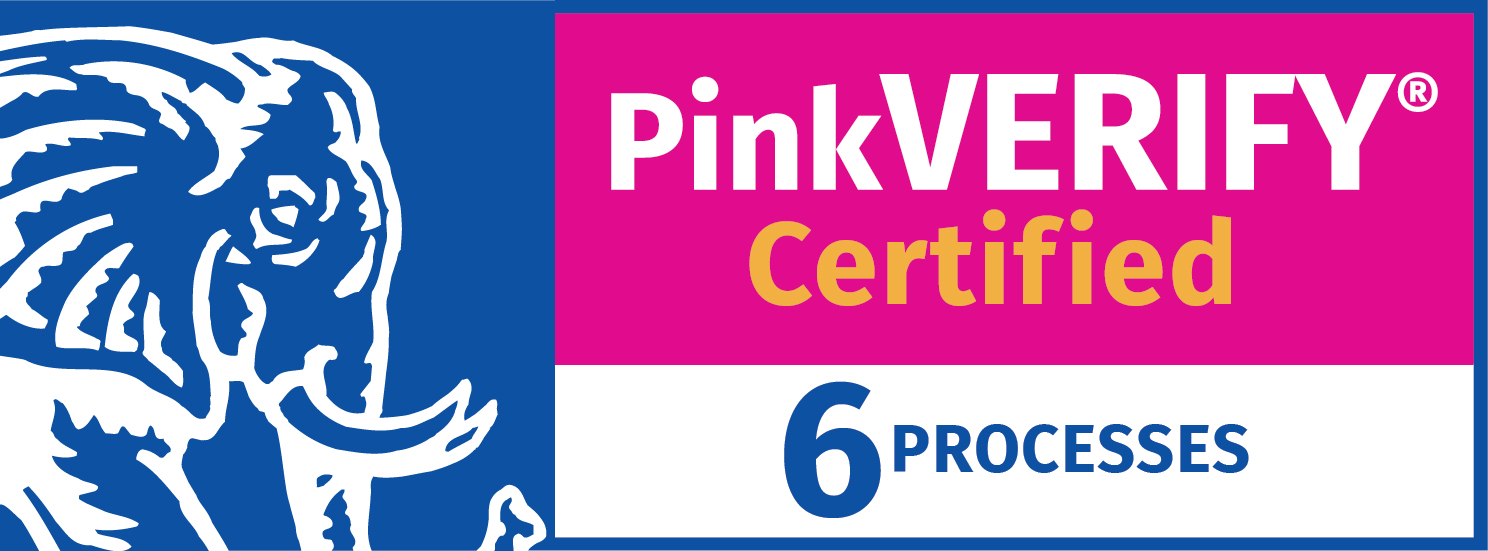We know how important it is for IT professionals to stay relevant and competitive in this rapidly evolving tech industry. Pursuing a new certification is one option, but it can be hard to identify the best IT certifications. Which ones are truly worth your time and investment?
We get it; you want to make sure any professional certificate you pursue will provide a strong return and help propel your career forward. That's where this guide comes in. We're here to share our top picks, plus some tips for identifying the most reputable IT certifications that will give you a meaningful edge.
Let's get started!
Unlocking Career Progression
Discover the strategies to lifelong learning and evolvement in IT
Download for free
Why IT certifications matter
IT certifications validate your skills in various tech domains, showcasing your commitment to staying current. Whether you're an entry-level professional looking to break into the field or an experienced IT leader seeking to advance your career, certifications can make a significant difference in your career development.
For those new to the industry, certifications can help boost your resume if you still need to gather hands-on experience, opening doors that may have otherwise remained closed. However, the benefits extend well beyond entry-level roles.
Mid-career and seasoned IT professionals can pursue certifications to demonstrate their mastery of advanced technologies, leadership abilities, and dedication to professional development. This can lead to higher-level job opportunities, increased earning potential, and greater respect within the organization.
Entry-level IT certifications
CompTIA A+
CompTIA A+ is an entry-level certification that validates foundational IT skills and topics, including computer hardware, software, networking, security, and troubleshooting. It is vendor-neutral, making it applicable across different IT environments, including both Windows and macOS operating systems. It’s ideal for entry-level IT technicians, help desk technicians, and desktop support analysts.
This certification provides a comprehensive introduction to IT, making it a valuable starting point for anyone new to the computer science field. The exam covers topics like installation, preventative maintenance, networking concepts, security, and troubleshooting. CompTIA A+ certified professionals are equipped to handle the basics of IT support and prepare for more advanced certifications.
Google IT Support
Google IT Support certification is designed to teach in-demand skills at your own pace without requiring a degree or prior experience. The curriculum covers all the basic concepts of customer service, network protocols, cloud computing, and more. It's ideal for aspiring IT support specialists, entry-level IT technicians, and career changers entering the IT field.
This certification is part of Google’s broader effort to make IT training more accessible and affordable. Upon completion, candidates have the option to connect with top employers who recognize the certification, providing a clear pathway to employment.
Microsoft Fundamentals
Microsoft Fundamentals certification validates basic knowledge of using and managing a Windows device. It's ideal for IT support specialists, help desk technicians, and desktop support analysts. The certification covers essential Windows operating system skills, including installation, configuration, and troubleshooting. This certification is a valuable entry point for professionals working with Microsoft technologies.

Entry Level IT Jobs: Roles to Start Your Career
Cybersecurity certifications
CompTIA Security+
CompTIA Security+ certification demonstrates the skills and understanding needed to safeguard networks against hackers and malware. It's ideal for information security analysts, systems administrators with a security focus, and network engineers.
The certification covers essential security concepts, including threat management, risk mitigation, and intrusion detection. CompTIA Security+ is recognized as a foundational certification for cybersecurity professionals, helping them to build a career in this critical field.
CompTIA CySA+
CompTIA CySA+ certification covers essential elements of cybersecurity, such as data analysis, vulnerability identification, and threat mitigation. It's ideal for cybersecurity analysts, penetration testers, and incident responders.
The certification focuses on applying behavioral analytics to improve overall IT security. It’s designed for security professionals, who want to advance their skills in detecting and combating cybersecurity threats.
EC-Council CEH (Certified Ethical Hacker)
The EC-Council CEH certification demonstrates the skills and knowledge needed to be a top-notch security expert. It's ideal for ethical hackers, penetration testers, and security consultants. The certification covers various hacking techniques and tools, emphasizing the mindset of a hacker.
Professionals can better protect their systems and networks by understanding how hackers think and operate. This certification is highly regarded in the cybersecurity community and is a stepping stone to more advanced certifications.
Certified Information Systems Security Professional (CISSP)
CISSP certification validates advanced skills in developing and managing enterprise information security programs. It's ideal for infosec managers, aspiring managers, or IT consultants.
The certification covers eight domains: security and risk management, asset security, and software development security. CISSP is a globally recognized credential globally and is often required for senior-level positions in information security. This certification demonstrates a deep understanding of cybersecurity principles and best practices.

How to Build a Cybersecurity Culture in your Company
Networking certifications
Cisco Certified Network Associate (CCNA)
CCNA validates the knowledge and abilities to manage and optimize sophisticated networks. It's ideal for network administrators, network engineers, and IT support technicians.
The CCNA certification covers a range of networking topics, including IP connectivity, network access, and security fundamentals. Being a Cisco Certified Network Associate is widely recognized in the industry and serves as a solid foundation for more advanced Cisco certifications.
Cisco Certified Network Professional (CCNP)
CCNP certification covers various networking topics, such as routing, switching, and network security. It's ideal for IT network specialists who have completed the CCNA training and wish to further their knowledge.
The certification consists of core and concentration exams, allowing professionals to specialize in enterprise networking, data center, and security. CCNP-certified professionals are equipped with security expertise to handle complex network and data management solutions and play a crucial role in their organizations.
Cisco Certified Internetwork Expert (CCIE)
The Cisco Certified Internetwork Expert (CCIE) certification is an extremely prestigious and challenging expert-level certification for network administration. It validates an individual's expert-level knowledge and skills in designing, implementing, and troubleshooting complex enterprise networking infrastructures.
The CCIE program is divided into several specialized tracks: Routing and Switching, Collaboration, Data Center, Security, Service Provider, and Wireless. To earn a CCIE, candidates must pass a rigorous two-part exam process - a written exam and an intensive 8-hour hands-on lab exam. Cisco offers an authorized training program called the Cisco 360 Learning Program to help candidates prepare for the CCIE exams.
Cloud computing certifications
Amazon Web Services (AWS) Certified Cloud Practitioner
AWS Cloud Practitioner certification validates foundational knowledge of cloud services and how they are provided with AWS. It's ideal for IT support specialists, cloud enthusiasts, entry-level cloud engineers, technical sales professionals, and business decision-makers.
The certification covers AWS core services, cloud concepts, security, and compliance. It provides a solid understanding of AWS's operation and prepares candidates for more advanced AWS certifications.
Google Cloud Digital Leader Certification
Google Cloud Digital Leader Certification validates foundational knowledge of cloud services and how they are provided with Google Cloud. It's ideal for IT support specialists, cloud enthusiasts, entry-level cloud engineers, technical sales professionals, and business decision-makers.
The certification covers core concepts of cloud computing, Google Cloud services, and how to leverage them for business solutions. This certification is a great starting point for anyone interested in Google Cloud platform technologies.
Microsoft Certified: Azure Fundamentals
Microsoft Certified: Azure Fundamentals validates foundational knowledge of cloud services and how they are provided with Microsoft Azure. It's ideal for IT support specialists, cloud enthusiasts, entry-level cloud engineers, technical sales professionals, and business decision-makers.
The certification covers core Azure services, cloud concepts, and Azure pricing. It serves as a foundation for more advanced Azure certifications and provides a comprehensive introduction to Microsoft’s cloud platform.
Tips for identifying the best IT certifications
Let's review some tips on how to evaluate a certification outside the list we provided.
-
Check the provider's reputation:
-
As you probably noticed, we listed reputable providers such as CompTIA, Cisco, AWS, Google Cloud, and EC-Council. That's because they are established, reputable organizations widely recognized and valued in the IT industry.
-
These providers have a proven track record of delivering high-quality, industry-recognized certifications.
-
-
Review the course content:
-
Ensure the certification curriculum covers relevant, up-to-date topics and skills that are in demand within the IT field.
-
The content should align with the latest technologies, best practices, and industry standards.
-
-
Consider industry recognition:
-
Research how widely the certification is recognized and valued by employers in the IT industry.
-
Look for certifications that are commonly listed as requirements or preferred qualifications in job postings.
-
-
Seek recommendations and feedback:
-
Consult with industry peers, mentors, or IT professionals to get their insights on the most valuable and respected certifications in your field.
-
Check online forums, blogs, and industry publications for discussions and reviews of different certification programs.
-
Additional tips
-
Vendor-specific vs. vendor-neutral: Consider whether you want a certification that is specific to a particular platform (e.g., AWS, Azure) or one that is more general and can be applied across multiple platforms.
-
Cost: Certification exams and prep courses can be costly, so weigh the investment against potential career benefits.
-
Employer support: Ask your employer if they will help cover certification costs. For example, 40% of cybersecurity professionals have their certification exams and fees paid for by their employers.
Other reputable certification providers
-
IBM: Offers certifications in areas like cloud, data science, security, and more. Some popular IBM certs include IBM Certified Solution Architect and IBM Certified Developer.
-
VMware: Provides certifications for virtualization and cloud technologies, such as the VMware Certified Professional (VCP) and VMware Certified Advanced Professional (VCAP).
-
Red Hat: Known for its Linux and open-source technology certifications, including the Red Hat Certified System Administrator (RHCSA) and Red Hat Certified Engineer (RHCE).
-
ISACA: Offers respected certifications in governance, security, and risk management, including Certified Information Systems Auditor (CISA) and Certified Information Security Manager (CISM).
-
(ISC)²: Provides the highly regarded Certified Information Systems Security Professional (CISSP) certification for cybersecurity professionals.
-
GIAC (Global Information Assurance Certification): Specializes in cybersecurity and information security certifications like GIAC Security Essentials Certification (GSEC).
-
ITIL (Information Technology Infrastructure Library): The de facto standard for IT Service Management, with certifications from foundation to expert levels.
-
PMI (Project Management Institute): Offers the Project Management Professional (PMP) certification, a top-paying credential.

ITIL Certification in 2024: Why, Which One, How and Its Costs
Conclusion
IT certifications can significantly enhance your job prospects and career advancement. You should pursue certifications if they align with your goals and career path. While the debate between IT certifications and college degrees continues, the reality is that the two can work hand-in-hand to propel your career forward. Certifications offer a more targeted, cost-effective, and time-efficient way to validate your skills and expertise in specific technologies and job roles.
The key is to keep learning and expanding your skillset, whichever route you choose. The IT industry moves quickly, so maintaining up-to-date certifications demonstrates your commitment to professional development and your value to employers.




